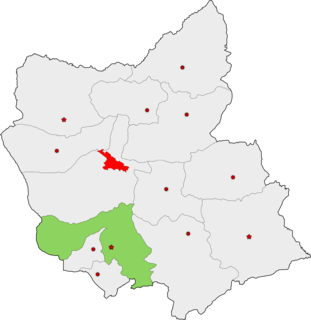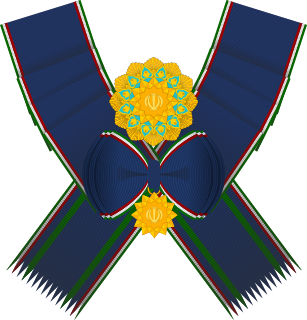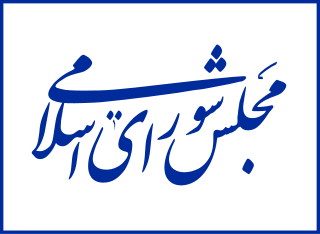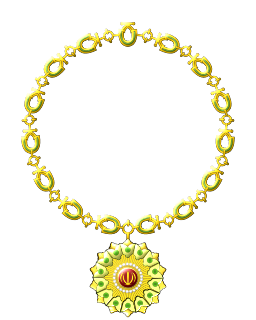
Maragheh and Ajabshir is the 2nd electoral district in the East Azerbaijan Province of Iran. This electoral district has a population of 314,427 and elects 1 member of parliament.

Ahar and Heris is the 4th electoral district in the East Azerbaijan Province of Iran. This electoral district has a population of 196,842 and elects 1 member of parliament.

Malekan is the 9th electoral district in the East Azerbaijan Province of Iran. The district has 106,118 residents and elects one member of parliament. Malekan and Bonab were a joint electoral district from 1st to 5th Iranian legislative election and in just the first election returned two members of Islamic Consultative Assembly.

Kaleybar, Khoda Afarin and Hurand is the 10th electoral district in the East Azerbaijan Province of Iran. This electoral district has a population of 104,903 and elects 1 member of parliament.

Khalkhal and Kowsar is the 4th electoral district in the Ardabil Province Of Iran. It has a population of 118,530 and elects 1 member of parliament.

Mahabad is the 7th electoral district in the West Azerbaijan Province of Iran. It has a population of 215,529 and elects 1 member of parliament.

The Excellent Order of the Islamic Republic is Iran's state decoration of honour, established by "Council of Iran Ministers" on November 21, 1990. According to Article 5 of the Regulations on the Awarding of Government Orders of Iran, the Order of the Islamic Republic awarded by President of Iran to the heads and other officials of foreign countries, the highest executive of international organizations, or to prominent cultural, political, international characters recognized in any of the following respects:
- The exaltation of the word Islam and the spread of the intellectual foundations of the Islamic Revolution
- Defending the rights of the world's oppressed peoples
- Act to liberate their country from cultural, economic and political colonization
- Protect and preservation of their country from the aggression of superpowers or their subordinates
- Acquisition of fundamental freedoms and human rights for the people of their country
- Sensitive and appropriate support for Iran's positions on major international scenes
- Taking anti-arrogant stances
- Sincerely cooperate in establishing or developing healthy relations between the Islamic Republic of Iran and the country of in charge character
- Continuously striving for peace and security and comfort in the world
The Iranian Parliament Committee on Economic, or Economic Committee is a standing committee of the Islamic Consultative Assembly of Representatives. The Parliament Committee on Economic has general economic, and it can recommend funding appropriations for various governmental agencies, programs, and activities, as defined by House rules. in the 11th parliament; Mohammad Reza Pour Ebrahimi was president, Kazem Mousavi first deputy and TBD second deputy.

The Iranian Parliament Committee on Energy, or Energy Committee is a standing committee of the Islamic Consultative Assembly of Representatives. The Parliament Committee on Energy has general Oil, gas, electricity, water and electric dams and power plants, nuclear power and renewable energy and it can recommend funding appropriations for various governmental agencies, programs, and activities, as defined by House rules. in the 11th parliament; Fereidon Hasanvand was president, Qasem Saedi first deputy and Ahmad Moradi second deputy.

Natanz and Qamsar is an electoral district in the Isfahan Province of Iran. This electoral district elects 1 member of parliament.

The Order of Islamic Revolution is the highest order of the honorary orders in the Islamic Republic of Iran, established by "Council of Iran Ministers" on November 21, 1990. According to "Article 2" of the "Regulations on the Awarding of Government Orders" of Iran, the "Order of Islamic Revolution" is one number for each presidential term which is being given to the President of Iran at the ceremony of the presidential inauguration.
The history of the parliament in Iran refers to the history of this legislative body in Iran, which has gone through various stages. This legislative body has been changing and expanding from a 25-member House of Expediency to the present day, which operates under the name of the Islamic Consultative Assembly with 290 members.

This is an article introducing the board of directors of the Iranian parliament and legislative system of the Islamic Republic of Iran called the Islamic Consultative Assembly.

In the total 11 terms of the Parliament of the Islamic Republic of Iran, 78 women have won 111 seats in various terms. Some of these women were subsequently disqualified by the Guardian Council, some failed to win the necessary votes to re-enter parliament, some were imprisoned or left Iran, and others are still seeking re-election to the parliament. There are 16 women from 13 constituencies in the current term of the parliament of Iran.

Pursuant to Article 39 of the Law on Internal Regulations of the Islamic Consultative Assembly, the Joint Commission of the Islamic Consultative Assembly, in cases where a plan or bill is proposed in the Assembly and at the discretion of the board of directors is within the scope of work of several specialized commissions, is formed from the members of the relevant commissions to review the mentioned plan or bill. The number of members of the Joint Commission is 23, and the share of each of the relevant commissions is determined by the board of directors of the Assembly.

Pursuant to Article 40 of the Law on Internal Regulations of the Islamic Consultative Assembly, the Special Commission of the Islamic Consultative Assembly, formed in cases where important and exceptional issues occur in the country. So with the election of at least 15 people from the Assembly's members and with the approval in the public session, the Special Commission forms to review and prepare a report in this regard. The members of this commission, which will be 15 people, will be elected in a public session of the parliament by secret ballot and based on the relative majority of votes of the present representatives.

Pursuant to Article 41 of the Law on Internal Regulations of the Islamic Consultative Assembly, the Integration Commission of the Islamic Consultative Assembly, in order to regulate the principles and provisions of development programs and budget bills of the whole country and to establish coordination between the specialized commissions of the Islamic Consultative Assembly, after the relevant bill is submitted by the government to the Assembly, is formed consisting of the following members:
- Nine people from the Program, Budget and Accounting Commission
- Three people from other specialized commission

Pursuant to Article 51 of the Law on Internal Regulations of the Islamic Consultative Assembly, the Program, Budget and Accounting Commission of the Islamic Consultative Assembly shall be formed to perform the assigned tasks within the scope of the country program, country budget, supervision of the program and budget and the Court of Accounts and Finance of the Assembly, and to provide statistics and general technical services in accordance with the provisions of the regulation.

Pursuant to Article 42 of the Law on Internal Regulations of the Islamic Consultative Assembly, the Investigative Commission of the Islamic Consultative Assembly is responsible for reviewing the credentials of members of the Assembly who have not been approved by the branches or have been challenged by other representatives. The fifteen branches of the Islamic Consultative Assembly, after appointing their board of directors, are obliged to nominate two of their members who are more knowledgeable about legal issues and have the necessary qualifications to join the Investigative Commission to be read in the public meeting of the Assembly. Therefore, the Investigative Commission will have 15 main members and 15 alternate members.

Pursuant to Article 43 of the Law on Internal Regulations of the Islamic Consultative Assembly, the Internal Regulation Commission of the Islamic Consultative Assembly is responsible for reviewing plans and bills proposed by the representatives and branches to amendment of internal regulations and change in the process of implementation of affairs of the Assembly. The commission evaluates the relevant plans and bills and reports the result. Each of the fifteen branches of the Islamic Consultative Assembly is obliged to nominate one of its qualified members to be a member of this commission so that the result can be determined after reviewing his / her credentials. Therefore, the Internal Regulation Commission of the Islamic Consultative Assembly will have 15 members.













